Warlock is playable again. More than that, Warlock is climbing to the top of the ladder.
After spending a summer on the shelf, the Warlock class has returned to the spotlight with its classic, Handlock look. Jack “J4CKIECHAN” Hutton first showed off what the class could do, taking his version of Control Warlock on a 26-2 run up the ladder on release day. His deck focused heavily on Demon synergies with Bloodreaver Gul’dan, Warlock’s Death Knight Hero card. This version of Control Warlock relied solely on the Death Knight to win the game. While the deck performed well against aggro decks, its win rate started to dip as the format slowed down and new control decks started to rise.
Since then, Asia-Pacific player “Urana” has taken some of J4CKIECHAN’s ideas and crafted a new version of the deck—Bloodreaver Handlock. This version takes the slower meta into account and adds more late game threats and tech choices to the deck while maintaining some of its previous Demon synergies. Urana piloted the deck to the top of Legend in the Asia-Pacific region. Clearly, this deck has some staying power.

How you win
The deck gets its name from Bloodreaver Gul’dan. When Gul’dan enters the battlefield, he resurrects all over your demons that have died so far this game. Gul’dan is pretty sure to resurrect two or three of your demons and tip the board state in your favor, but more importantly, he changes your Hero Power. Gul’dan’s new Hero Power has Lifesteal and deals three damage to any target. This new ability replenishes your lost health from your card draw and board clears earlier in the game and ensures you’ll have enough time to end the game, be it with demons, card advantage, or some other means.
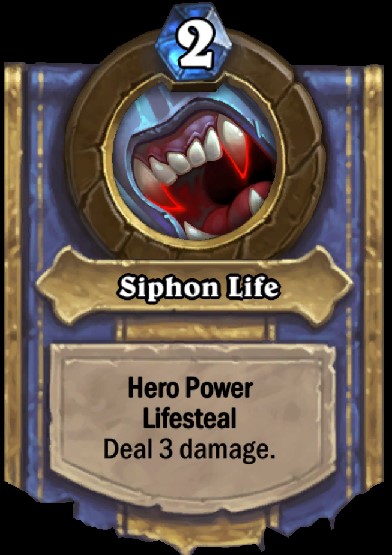
In addition to the Death Knight, Bloodreaver Handlock plays several other large threats that demand a response from the opponent. The Lich King provides an 8/8 Taunt for eight mana and gives you a special Death Knight card at the end of every turn. Mountain Giant combines with Warlock’s Hero Power to always boast an imposing body for an aggressive cost. These cards give the deck greater topdeck potential as the game goes late.
Your removal
Control decks need strong removal suites. Your removal stems the tide against early and midgame aggression, keeping you alive and the board and check so that once you reach the late game, you can turn the corner.
There are two types of removal—spot removal and board clears. Spot removal takes care of one target minion and board clears try to kill multiple units.
Mortal Coil, Shadowbolt, and Siphon Soul make up the spot removal of Bloodreaver Handlock. Mortal Coil replaces itself if it kills a minion. Shadowbolt offers a clean answer to most early game threats. Siphon Soul is the best of the lot because it simultaneously destroys any targetable minion and restores some of your life total. Keep in mind that since Siphon Soul can destroy any minion, you want to save it for your opponent’s bigger threats, those that your other removal spells can’t kill.
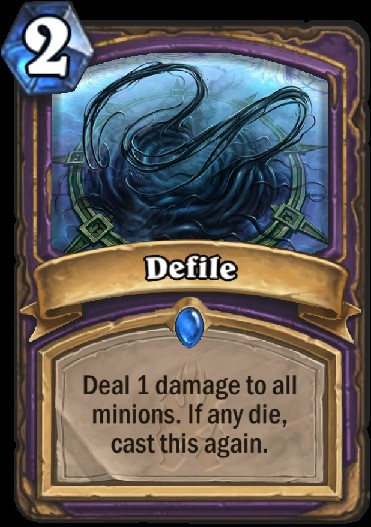
Bloodreaver Handlock uses several board clears as well to deal with multiple opposing minions while maintaining card advantage. Defile is a strong early game tool that, if played right, can take away your opponent’s first and second turn plays. Doomsayer offers another early board clear, but more importantly, prevents your opponent from adding more pressure to the board. When the turn passes to you, the battlefield is empty, and you can seize the initiative with an uncontested Twilight Drake or Despicable Dreadlord. Look for these sorts of opportunities and take advantage of them. Hellfire rounds out the spell-based board clears if Defile and Doomsayer didn’t get them all.
Two of the demons in the deck also serve as board clear effects. Despicable Dreadlord comes down on turn five and deals one damage to all enemy minions at the end of each of your turns. Abyssal Enforcer acts as a Hellfire on a 6/6 body, attacking the board while providing a small tempo advantage. Feel free to use these minions aggressively. They can set up opportunistic trades with some of your weaker minions or spot removal spells. If they die, it’s not a heavy loss since you’ll bring them back later in the game with Bloodreaver Gul’dan. The key is to reach the ability to cast Bloodreaver Gul’dan. Dreadlord and Enforcer exist to help you get there.
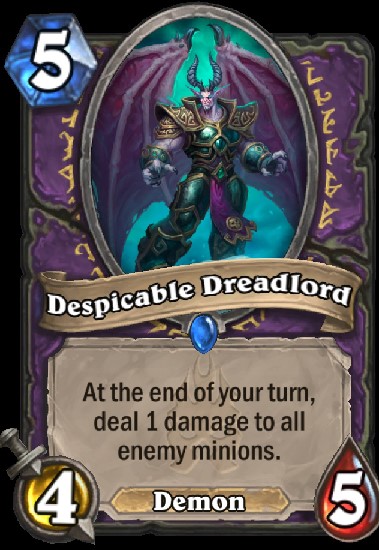
Tech Choices
The deck contains several flex slots where you can choose which cards you want to play depending on the meta you face while climbing the ladder.
In this list, Acidic Swamp Ooze, Spellbreaker, and The Black Knight fill those slots. Acidic Swamp Ooze offers an efficient way to deal with weapon-based classes like Paladin or Warrior. Spellbreaker makes a sensible choice in a meta with a lot of minion-centric abilities, like The Lich King’s active ability, or just simple keywords like Taunt and Deathrattle. Spellbreaker disrupts these abilities and paves the way for a cleaner response to the target minion. The Black Knight is a popular choice due in direct response to the rampant popularity of The Lich King in most control lists. The Black Knight offers a clean, tempo-driven answer to The Lich King or any other Taunt minion, making the card a reasonable and powerful option.
Early game
Against aggro decks, you want to trade your removal for their minions as best as possible. Look for the big Defile play if it’s there, but don’t get greedy. Your primary objective is damage control. Just survive so you get to play some of your fun cards.
Against control matchups, you want to use your Hero Power as much as possible. Card advantage is everything in control mirrors, and you want to be sure you’re plenty stocked for the fights to come. Spend your removal as needed and start thinking about how you will sequence your midgame threats. Remember, a timely Doomsayer presents an excellent pivot to put you on the front foot as the game enters its middle stages.
Midgame
In both cases, this is the stage of the game where you’ll start deploying minions. On curve Twilight Drakes and Despicable Dreadlords should provide sufficient pressure to the board and create favorable trade opportunities. Faceless Shambler can further strengthen your defensive posture by copying a healthy Twilight Drake’s stats and becoming a strong Taunt minion. Your goal remains surviving, but now we’re primarily using minions rather than spells. Your demons are expendable.
Against aggressive strategies, these are the turns where you should start to mind your remaining life total. Before beginning your turn, consider your opponent’s board and his potential plays next turn. Does he have lethal next turn? How? Can you prevent it? Always trade with the board when you can. You can start to attack the opponent’s life total after you have control of the game. Use your Hero Power sparingly.
Late game
Aggressive decks should be low on cards by now. Expend removal as necessary to get rid of their final board, then start applying pressure with your larger threats. Aggro decks are usually light on strong removal, so any one of them should get the job done.
While you shouldn’t expect all of your late game threats to survive against control decks, you still want to make sure you get some value out of them. If you have both a Lich King and Mountain Giant in hand, play the Giant first and bait out your opponent’s best removal spell. The more cards your Lich King generates, the better off you’ll be. Remember it’s ultimately card advantage, not a particular minion or a spell, that wins the control mirror.
Choosing the moment to play Bloodreaver Gul’dan can get tricky. Bloodreaver Gul’dan is a passive play, meaning he doesn’t immediately interact with your opponent’s board when played. And since Gul’dan costs 10 mana, he takes up your entire turn. Anytime the board position is even or you’re ahead—go for it. Playing Gul’dan while behind on the board can feel like playing nothing at all. At the same time, the sooner you get that new Hero Power online, the better. You have to weigh the risk versus the reward. Ask yourself if you can put yourself in a better position to cast Gul’dan on the following turn. If you still have demons in your hand, play them first if you have the time—it only makes your Gul’dan better when the time comes. Remember, you need to get as much value as you can out of your late game threats.
Weaknesses
The Mage class can be a pretty tough one to overcome. Tempo strategies can apply enough minion damage early and then just burn you out as the game goes on. Slower strategies apply about the same amount of board pressure as you do through the early and middle turns, but their late game offers better reach due to their burn spells. You just don’t have enough healing in the deck to counteract Mage’s burn package. In this matchup, try and cast an early Twilight Drake with a large amount of health. The Mage player may be forced to spend multiple burn spells or one of its precious Meteors on it, potentially freeing up one of your other threats down the line. You need to keep up in cards, but use your Hero Power sparingly—every Life Tap extends the reach from the burn spells.
Pirate and Tempo Warrior put on too quick a clock, don’t care about your removal suite due to the burst potential from your weapons, or in the case of some tempo lists, actually benefit from some of your board clears. These matchups can spiral out of control in a hurry as you try to simultaneously heal and deal with the board. Faceless Shambler comes in handy, here. If it’s able to copy a decent minion, Faceless Shambler can eat a minion or weapon charge or two and buy you a crucial one or two turns to develop your late game.
Warlock has returned with a modern take on a classic control archetype. It certainly looks strong now, but will it be able to stay around as the format continues to adapt and evolve? Only time will tell. Until then, it’s nice to see Gul’dan’s face again.



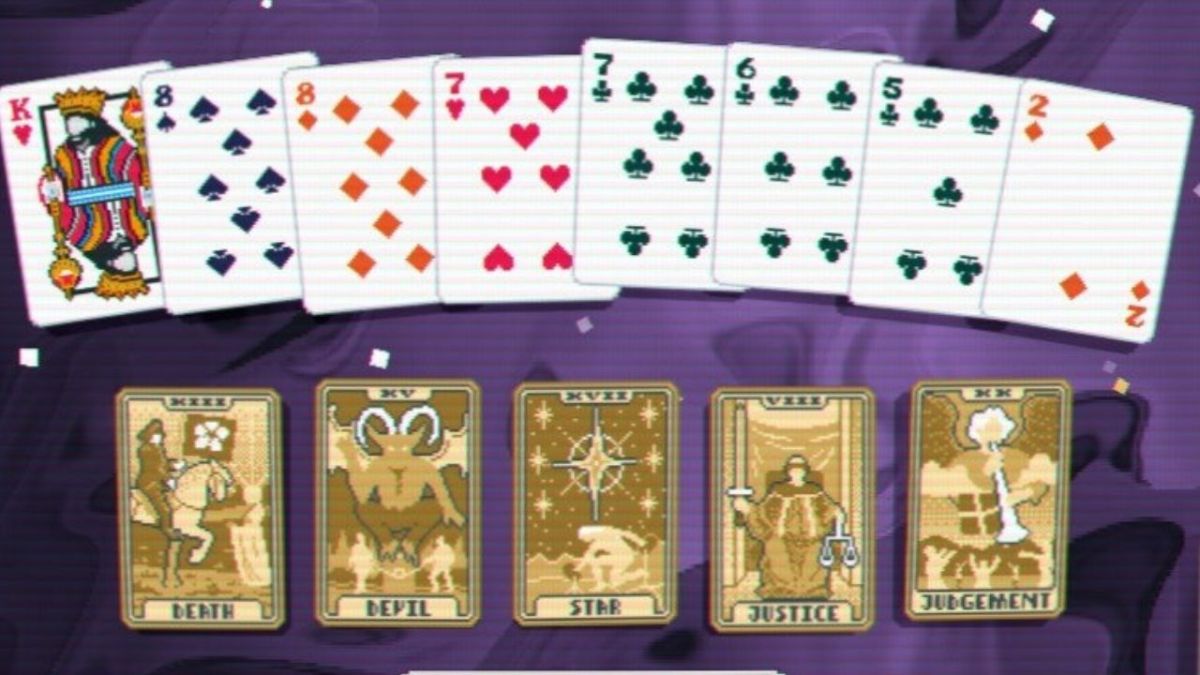
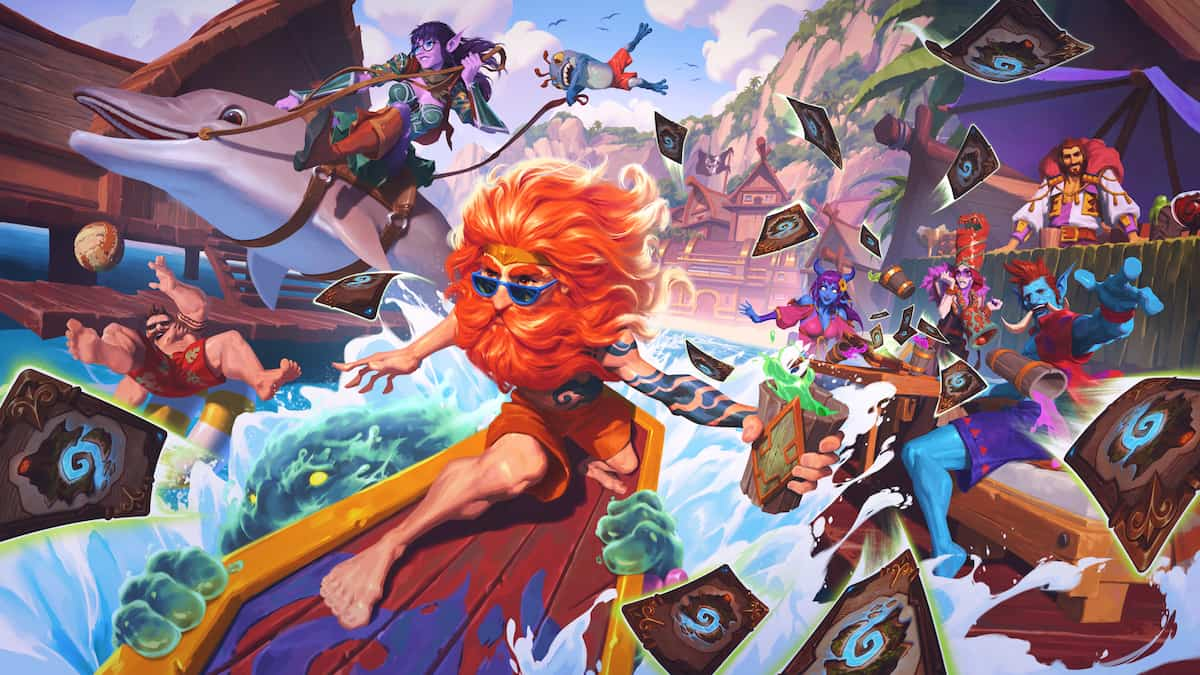
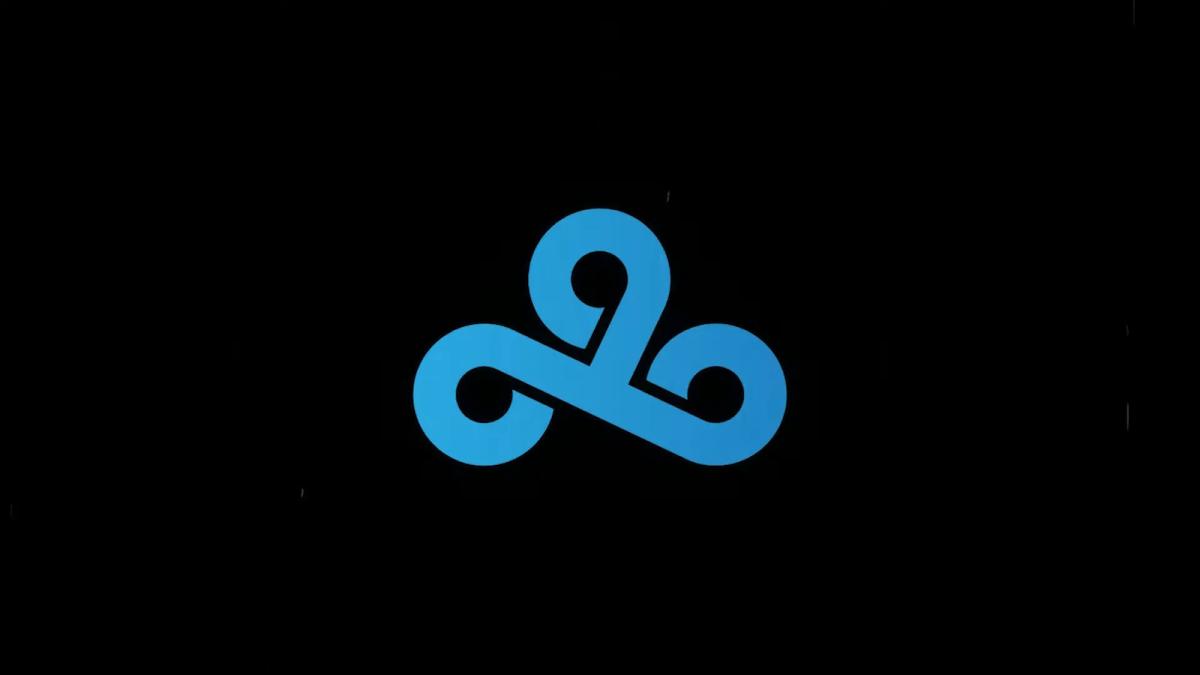
Published: Aug 16, 2017 06:32 am